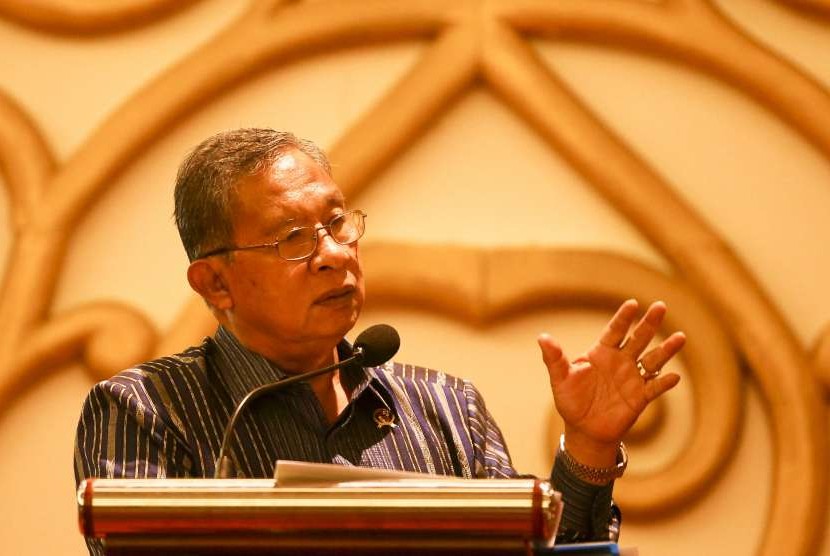REPUBLIKA.CO.ID, JAKARTA -- The economic fundamentals of the country remain robust amid the current fluctuations in the US dollar. Indonesia's Coordinating Minister for Economic Affairs Darmin Nasution stated that after a meeting with President Joko Widodo at the State Palace here on Tuesday.
"We still have strong economic fundamentals. The only weakness is the current account deficit recorded at three percent," Nasution noted.
The fundamental factors were assessed from the economic growth and inflation in Indonesia, the minister added. According to him, the current account deficit was still lower than the deficit in 2014 that had reached 4.2 percent.
Nasution noted that the government had improved the performance of the real sector, including tourism, mining, and industry, in a bid to reduce the current account deficit. He called on the public to not compare the current depreciation of the rupiah with the situation before the monetary crisis in 1998 during which the rupiah has dropped sharply to some Rp14 thousand against the US dollar.
"Do not compare the current rate of Rp14 thousand with the situation 20 years ago. The rupiah has dropped from Rp2,800 to Rp14 thousand some 20 years ago. However, now (the rupiah) had depreciated from Rp13 thousand to Rp14 thousand," he noted.
He emphasized that the government's macro economic policies are still effective to be implemented. The US dollar has reached its highest level in a week against other currencies on Monday.
The sell-off in emerging market currencies and the escalating global trade tensions have sparked demand of the greenback. The US dollar was traded higher on Tuesday morning against some currencies. The rupiah was recorded at Rp14,816 against the greenback.
Previously, the exchange rate of inter-bank trade in Jakarta on Monday afternoon fell by 126 points to Rp14,815 compared to the previous position of Rp14,689 per US dollar. FXTM Research Analyst Lukman Otunuga here Monday stated that the economic turmoil in Turkey and Argentina had weighed on the currencies of developing countries, including the rupiah.
"Even though Bank Indonesia (BI) intervened in an effort to maintain the rupiah, strong external negative sentiment hindered BI's efforts to protect the domestic currency," he said.


